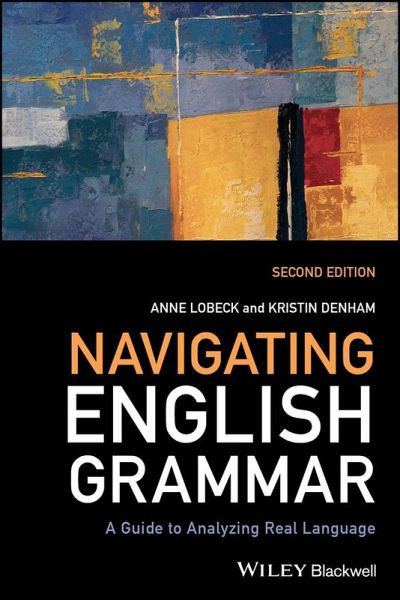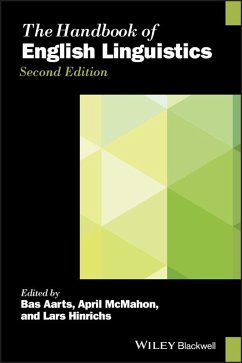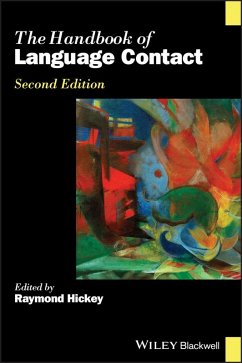
Navigating English Grammar (eBook, ePUB)
A Guide to Analyzing Real Language
Versandkostenfrei!
Sofort per Download lieferbar
27,99 €
inkl. MwSt.
Weitere Ausgaben:

PAYBACK Punkte
0 °P sammeln!
Enables students to understand their assumptions and beliefs about the language they use every dayIn Navigating English Grammar, Anne Lobeck and Kristin Denham offer an engaging introduction to the linguistic study of the structure of English. Teaching basic grammatical analysis through inquiry rather than memorization, this popular textbook encourages students to use their intuitive knowledge of language to make their own discoveries about the grammatical categories add principles of the grammar of English.The book strikes a balance between basic descriptive grammar and syntactic theory, intr...
Enables students to understand their assumptions and beliefs about the language they use every day
In Navigating English Grammar, Anne Lobeck and Kristin Denham offer an engaging introduction to the linguistic study of the structure of English. Teaching basic grammatical analysis through inquiry rather than memorization, this popular textbook encourages students to use their intuitive knowledge of language to make their own discoveries about the grammatical categories add principles of the grammar of English.
The book strikes a balance between basic descriptive grammar and syntactic theory, introducing students not only to the structure of English, but also in some cases to why English has the structure it does. Along the way, students discover how English has changed over time, and how it varies from speech community to speech community. Student-friendly chapters contain numerous examples drawn from different varieties of American English, which illustrate how English grammar is a dynamic system: perceptions of one variety as 'better' or 'more correct' than another, and notions of 'standard' and 'non-standard' English are socially constructed rather than based on linguistic fact.
This edition is fully updated with new examples, new text excerpts from a diverse range of written genres and authors, and completely revised chapters and exercises. The book also includes an entirely new final capstone chapter designed to encourage students to apply what they have learned with more challenging practice exercises.
Navigating English Grammar: A Guide to Analyzing Real Language, Second Edition is an excellent textbook for undergraduate courses in English grammar, English linguistics, and language education.
In Navigating English Grammar, Anne Lobeck and Kristin Denham offer an engaging introduction to the linguistic study of the structure of English. Teaching basic grammatical analysis through inquiry rather than memorization, this popular textbook encourages students to use their intuitive knowledge of language to make their own discoveries about the grammatical categories add principles of the grammar of English.
The book strikes a balance between basic descriptive grammar and syntactic theory, introducing students not only to the structure of English, but also in some cases to why English has the structure it does. Along the way, students discover how English has changed over time, and how it varies from speech community to speech community. Student-friendly chapters contain numerous examples drawn from different varieties of American English, which illustrate how English grammar is a dynamic system: perceptions of one variety as 'better' or 'more correct' than another, and notions of 'standard' and 'non-standard' English are socially constructed rather than based on linguistic fact.
This edition is fully updated with new examples, new text excerpts from a diverse range of written genres and authors, and completely revised chapters and exercises. The book also includes an entirely new final capstone chapter designed to encourage students to apply what they have learned with more challenging practice exercises.
Navigating English Grammar: A Guide to Analyzing Real Language, Second Edition is an excellent textbook for undergraduate courses in English grammar, English linguistics, and language education.
Dieser Download kann aus rechtlichen Gründen nur mit Rechnungsadresse in D ausgeliefert werden.













